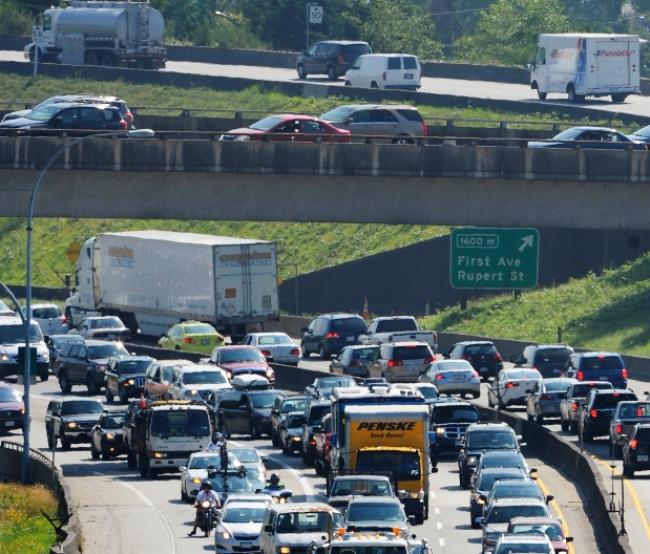Articles Menu

An economic think-tank in Victoria is projecting an 8.7-per-cent increase in greenhouse gas emissions from vehicles between the base year of 2005 and 2030 in Metro Vancouver.
This is despite an expected reduction in the average number of vehicles per person, expanded transit, robust improvements in new vehicle fuel consumption rates and more electric vehicles.
The projection is in stark contrast to the provincial goal of reducing all greenhouse gas emission by 33 per cent by 2020 and the new federal goal of 30-per-cent reduction by 2030.
Jim Johnson, one of two economists who form Pacific Analytics, said the reason for the projected increase is forecast population growth and a general shift toward larger vehicles.
“We should not be fooled into thinking there’s an easy solution,” he said in an interview.
Johnson said improved transit, higher crude oil prices, carbon tax rates and policies encouraging walking and cycling all help to reduce emissions, but not substantially.
The key, he added, is a “substantive difference in driving behaviour.”
The main part of the problem, he pointed out, is that people still love their cars.
He said if electric vehicles become more viable, this could have an impact, but based on his analysis, they will remain only a small portion of vehicle stock, amounting to between three and 3.5 per cent.
The study is critical of strategies that governments have adopted to reduce greenhouse gas emissions, claiming that virtually none of the strategies are regularly assessed to determine how well initiatives are meeting objectives.
The federal government failed to meet its 2009 commitment of a 17-per-cent decline by 2020, according to Pacific Analytics, now on track for less than a one-per-cent reduction.
Similarly, in 2007, B.C. passed legislation committing the province to reduce emissions by 33 per cent by 2020 from a 2007 baseline (18 per cent by 2016), a goal that is acknowledged as being impossible, said Johnson.
Pacific Analytics Inc.’s projections are based on data from the U.S. energy information administration, the Metro Vancouver regional growth strategy and forecasts of transit availability and options.
The report found that if crude oil prices were to rise substantially, emissions would lower slightly but they will still not decline to anywhere near the goals set by governments.
[End of article; to read a copy of Pacific Analytic's report click here. ]